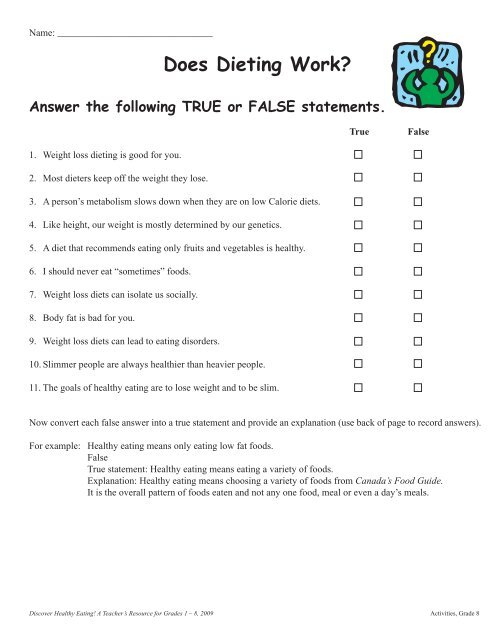Dive into ‘Which of the Following is True About Calories’ to uncover the answers you’ve been seeking. Discover the truth about calories in this comprehensive guide. Learn about their role in nutrition, weight management, and overall health. Get the facts to make informed choices about your diet and lifestyle.

The Basics Of Calories
Calories are a unit of energy used to measure the amount of energy in food consumed.
What Are Calories?
Calories are a measurement of energy. They stand for the energy value of the food and beverages that are ingested. The body utilizes calories as fuel to perform various functions such as breathing, circulating blood, and physical activities.
How Are Calories Measured?
Calories are measured using a calorimeter, a device that burns the food to determine the amount of heat released. This heat measurement indicates the number of calories in the food item. Food labels provide information on the number of calories in a serving size, allowing individuals to track their calorie intake.
Calories And Energy
Calories and Energy play a crucial role in understanding the relationship between nutrition and our body’s fuel source.
Calories As Energy Units
Calories are units of energy that measure the energy content in food and drinks.
Key Points:
- Calories are essential for our body to function and perform various activities.
- Understanding calorie intake is vital for maintaining a healthy weight.
Conversion Of Calories To Energy
Calories are converted into energy through digestion and metabolism processes.
How it works:
| Food/Activity | Calories |
|---|---|
| 1 slice of bread | 80 calories |
| 30-minute walk | 150 calories burned |
Impact Of Calories On The Body
Our general health and well-being are greatly influenced by calories. Understanding the impact of calories on our bodies is essential for making informed decisions about our diet and lifestyle. In this section, we will explore two important aspects: Calories and Metabolism and The Role of Calories in Weight Management.
Calories And Metabolism
Metabolism refers to the complex chemical processes that occur within our bodies to sustain life. One key element of metabolism is the conversion of food into energy. This process determines how many calories we burn, therefore influencing our weight and overall health.
Calories are the units of energy that our bodies require to perform various functions, such as breathing, circulating blood, and repairing cells. The rate at which our bodies burn calories at rest is known as the basal metabolic rate (BMR). It depends on factors like age, gender, body composition, and genetics.
When we consume more calories than our body needs for its daily functions, the excess energy is stored as fat. Over time, consistently consuming an excessive number of calories can lead to weight gain. On the other hand, consuming fewer calories than our body requires results in weight loss as our body taps into its fat stores for energy.
The Role Of Calories In Weight Management
Weight management is a holistic approach to maintaining a healthy weight. Calories are at the core of this process, as they determine how much weight our bodies gain or lose.
Consuming more calories than we burn off over time leads to weight gain. Gaining weight results from the surplus energy being stored as fat. This is why it’s important to be mindful of our caloric intake and make conscious choices about the quality and quantity of food we consume.
On the other hand, weight loss happens when we create a calorie deficit by consuming fewer calories than we burn. This deficit prompts our body to use stored fat as an energy source, resulting in weight loss over time.
However, it’s crucial to note that weight management is not solely about calorie counting. The quality of the calories we consume matters as well. Consuming nutrient-dense foods that provide essential vitamins, minerals, and macronutrients is essential for overall health and well-being.
In conclusion, understanding the impact of calories on our bodies is key to maintaining a healthy weight. By paying attention to our caloric intake and making informed choices, we can achieve and maintain a balanced and sustainable lifestyle.

Credit: www.yumpu.com
Understanding Caloric Intake And Expenditure
When it comes to weight management and maintaining a healthy lifestyle, understanding caloric intake and expenditure plays a crucial role. Calories are units of energy that our bodies need to function properly, and they come from the food and drinks we consume. In this section, we will explore caloric intake and expenditure and uncover the truth about calories.
Caloric Intake
Caloric intake refers to the number of calories we consume through the food and beverages we consume. It’s essential to be aware of your caloric intake, as consuming too many calories can lead to weight gain, while consuming too few calories can result in weight loss. So how can one calculate the ideal amount of calories to consume?
One way to determine your ideal caloric intake is by calculating your basal metabolic rate (BMR), which is the number of calories your body needs at rest to maintain basic bodily functions. Factors such as age, gender, weight, and activity level can affect your BMR. There are online calculators available that can help you determine your BMR and estimate your daily caloric needs.
It is crucial to remember that not every calorie is equal. While calories from nutrient-dense foods like fruits, vegetables, lean proteins, and whole grains provide essential vitamins, minerals, and other nutrients, empty calories from processed foods and sugary drinks offer little to no nutritional value.
Caloric Expenditure
Caloric expenditure, on the other hand, refers to the number of calories your body burns through physical activity and basic metabolic functions. The amount of calories you burn varies depending on factors such as age, weight, gender, and activity level.
Physical activities like walking, running, swimming, and strength training can help increase your caloric expenditure, allowing you to burn more calories. Additionally, the intensity and duration of your workouts can also impact the number of calories burned. It’s important to find activities you enjoy and incorporate them into your daily routine to promote a healthy caloric expenditure.
Understanding caloric intake and expenditure is key to achieving and maintaining a healthy weight. By being mindful of the number of calories you consume and balancing it with regular physical activity, you can create a sustainable and healthy lifestyle. It’s also important to remember that individual caloric needs may vary, so it’s always best to consult with a healthcare professional or registered dietitian before making drastic changes to your caloric intake or starting a new exercise regimen.

Debunking Common Myths About Calories
In this article, we will debunk common myths about calories that often lead to confusion or misinformation.
All Calories Are Equal Myth
Not all calories are equal, despite what many believe.
For the purpose of managing weight and general health, the source of calories matters.
Nutrient-dense foods are better than empty-calorie processed foods.
The Starvation Mode Myth
Starvation mode is a popular myth that metabolism slows drastically in response to decreased calorie intake.
Metabolism adjusts to lower caloric intake but doesn’t shut down completely.
Consistent, balanced eating is key for metabolism regulation.
Practical Tips For Managing Calories
When it comes to managing calories, it’s important to strike a balance between intake and expenditure. By making mindful choices and adopting healthy lifestyle habits, you can effectively manage your caloric intake and maintain a healthy weight. In this section, we will explore two important aspects of calorie management: balancing macronutrients and healthy approaches to achieving a caloric deficit.
Balancing Macronutrients
It’s not all about quantity when it comes to calories. The quality of calories also matters. Balancing macronutrients is an essential part of a healthy diet. Macronutrients refer to carbohydrates, proteins, and fats, which all provide energy in varying amounts. These pointers will help you strike the correct balance:
- Make sure your diet consists of a range of foods from various dietary categories.
- Pick nutrient-dense, whole, unprocessed foods as your main focus.
- Ensure that each meal contains a combination of carbohydrates, proteins, and healthy fats.
- Keep an eye on portion amounts to prevent overindulging.
By following these tips, you can nourish your body with the right nutrients while managing your calorie intake.
Healthy Approaches To Caloric Deficit
If your goal is to lose weight, creating a caloric deficit is necessary. However, it’s important to approach a caloric deficit in a healthy way to ensure that you’re providing your body with the nutrients it needs. Here are some healthy approaches to achieving a caloric deficit:
- Gradually reduce your calorie intake instead of drastically cutting it.
- Focus on nutrient-dense foods to ensure that you’re still getting the necessary vitamins and minerals.
- Incorporate regular physical activity into your routine to burn calories and support overall health.
- To prevent overeating, pay attention to your body’s hunger and fullness signals.
- For individualized counseling, see a licensed dietician or other healthcare provider.
Remember, achieving and maintaining a healthy weight is not just about the numbers on the scale. It’s about nourishing your body, making sustainable lifestyle changes, and finding what works best for you.
Calories And Nutritional Value
Calories play a vital role in determining the nutritional value of a food item. They provide energy for the body and influence weight management. Understanding the importance of calories helps maintain a balanced diet and overall health.
When we talk about calories, we often associate them with weight gain or loss. But calories go beyond just numbers on a scale; they also play a crucial role in providing the energy we need for daily activities. However, it’s essential to understand that not all calories are created equal. The quality of calories and the nutritional value they provide are equally important factors to consider when making dietary choices.
Quality Of Calories
Contrary to popular belief, the number of calories you consume is not the sole determinant of your overall health and well-being. The quality of those calories matters significantly. Simply put, not all calories have the same impact on your body. Instead of focusing solely on the number of calories consumed, it’s important to pay attention to the sources of those calories.
The quality of a calorie is determined by the nutrients it provides. Nutrient-dense foods play a crucial role in delivering essential vitamins, minerals, and other beneficial substances to our bodies. Unlike empty calorie foods that are high in calories but low in nutrients, nutrient-dense foods offer a more significant nutritional punch for the calories consumed.
Nutrient-dense Foods
Nutrient-dense foods are those that provide a wide range of essential nutrients in a relatively small number of calories. These foods are rich in vitamins, minerals, fiber, and other beneficial compounds that are vital for overall health and well-being. Including more nutrient-dense foods in your diet can help you meet your nutritional needs while managing your calorie intake effectively.
Some examples of nutrient-dense foods include:
| Fruits and Vegetables | Whole Grains | Lean Proteins |
|---|---|---|
| Apples | Quinoa | Chicken breast |
| Spinach | Brown rice | Fish |
| Broccoli | Oats | Beans |
By incorporating a variety of nutrient-dense foods into your meals and snacks, you can ensure that your body receives the necessary nutrients while keeping calorie intake in check. It’s about making choices that nourish your body and provide the fuel it needs to function optimally.
Remember that calories are not the enemy; rather, it’s the quality of calories that makes a difference. By focusing on nutrient-dense foods, you can enjoy a healthier, more balanced diet that supports your overall well-being.
Calories In Context: Dietary Guidelines
Eating the right amount of calories is crucial for maintaining a healthy diet. Let’s explore the recommended daily caloric intake and considerations for different lifestyles.
Recommended Daily Caloric Intake
1. Calorie requirements depend on factors such as age, sex, weight, and activity levels.
2. The general guideline for adult women is 1,800-2,400 calories per day, while for men, it’s 2,200-3,000 calories per day.
3. Infants and young children have specific calorie needs to support their growth and development.
Considerations For Different Lifestyles
1. Athletes and individuals with active lifestyles may require more calories to fuel their physical activities.
2. Sedentary individuals or those aiming for weight loss should consume fewer calories than their maintenance level.
3. Balancing calorie intake with expenditure is essential for weight management and overall health.

Credit: www.walmart.com
Frequently Asked Questions Of Which Of The Following Is True About Calories
What Is True About Calories?
Calories are a measure of energy in food. Your body uses them for daily activities. Gaining weight might result from overindulging in food.
Which Of The Following Best Describes Calories?
Calories are a measure of the energy in food and drink. When we consume more calories than we use, it can lead to weight gain. On the other hand, consuming fewer calories than we use can result in weight loss.
What Is A Calorie Quizlet?
A calorie on Quizlet is a unit of energy that measures the amount of energy in food. It helps in determining nutritional content.
What Makes A Calorie?
A calorie is a unit of energy found in food and drinks. It is a measure of the amount of heat required to raise the temperature of one gram of water by one degree Celsius. Calories come from macronutrients such as carbohydrates, proteins, and fats in our diet.
Conclusion
Understanding calories is essential for maintaining a healthy lifestyle. By being mindful of calorie intake and expenditure, individuals can work towards their wellness goals. Remember that the quality of calories matters just as much as the quantity. Make informed choices and strive for balance in your diet and physical activity.

I am a health writer and blogger based in the US and UK. I have been with the health department for six years. And I give advice on various health problems and solutions. I have a lot of experience in health matters and I share it here.

